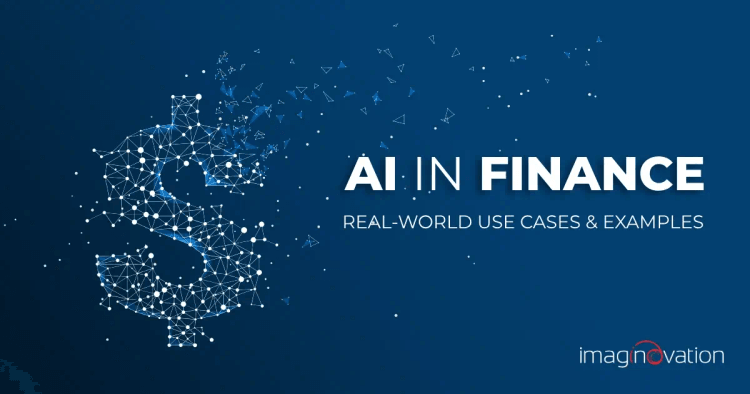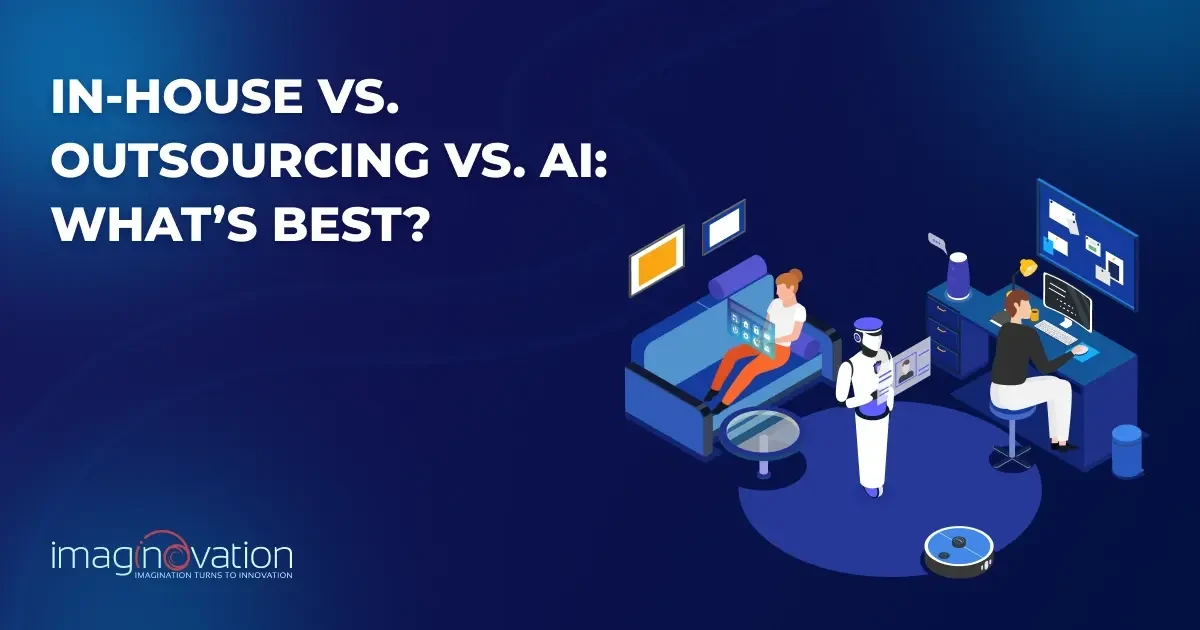The rise of Artificial intelligence (AI) in the global financial services landscape is undergoing a major transformation.
The arrival of AI in Finance has sparked excitement around cost savings and augmented productivity. In fact, according to a Gartner study, 80% of CFOs surveyed in 2022 expected to spend more on AI in the coming two years.
The future looks promising with tantalizing AI applications in finance. Tag along to look at some real-world cases of AI in Finance.
Deciphering AI: Its Significance and Role in the Financial Landscape
Using AI to unlock the potential in the finance sector offers limitless possibilities. It's a journey that financial chiefs need to consider and open the door to more innovations. Why now? Let's look at some exciting statistics.
- According to a study, around 81% of the C-suite professionals surveyed perceived AI as a competitive advantage for the success of their company. Furthermore, most financial services professionals worldwide saw artificial intelligence (AI) as an essential factor for their company's future success.
- Yet another study highlighted that as of 2023, more than one-third of financial services companies worldwide reported an increase in revenue of more than 20% due to the adoption of AI technologies. Moreover, 20% of the respondents reported a revenue increase between 5 and 10%.
- A study highlights that the adoption rate of AI in companies operating in the finance sector is expected to grow from 2022 to 2025.
- According to Mordor Intelligence, the AI in Fintech Market size is estimated at USD 42.83 billion in 2023 and is expected to touch USD 49.43 billion by 2028. During the forecast period of 2023-2028, it will grow at a CAGR of 2.91%.
Bottomline: The statistics are promising and highlight the importance of prioritizing exploring AI-enabled solutions to provide the best solutions for customers.
Key Benefits of AI in the Finance Sector
Improved customer experience
Embracing AI and ML helps to improve the quality of user experience. The technologies are helping the financial sector to achieve its goals of personalized and reliable services that meet the needs and expectations of its customers. Thus, customers get faster and more accurate responses to their queries and requests through channels such as voice assistants, chatbots, and email. Consequently, customer sentiment and feedback are enhanced, increasing customer trust and satisfaction.
Improved operations and reduced costs
AI and ML can help optimize and automate countless processes, leading to augmented operational efficiency. It has become a game-changer with tasks that require substantial time and effort.
For example, the banking industry still has human-based processes and is paperwork-heavy. Robotic process automation (RPA) can eliminate time-intensive and error-prone work, such as entering customer data from contracts, forms, and other sources. Plus, AI technologies and RPA bots can handle banking workflows more accurately and efficiently than humans.
Better fraud detection and regulatory compliance

Cybercrime costs the world economy around $600 billion annually (that is 0.8% of the global GDP). In this context, AI makes fraud detection faster, more reliable, and more efficient in financial services. AI algorithms can analyze massive amounts of data in real-time. Furthermore, they can identify patterns and detect anomalies that may indicate fraudulent activities.
Yet another critical aspect of the financial industry is compliance with regulations. AI can assist financial institutions with automating processes on regulatory compliance. Thus ensuring that there is adherence to complex regulations and reducing the risk of non-compliance. For instance, AI-powered systems can flag potential violations after analyzing transactions, customer data, and other relevant data.
Greater efficiency and faster decision-making
Smart AI can improve the efficiency of financial services, support growth, and reduce costs. The efficiency is achieved through streamlining credit card and loan approval processes, using RPA to run repetitive tasks, detecting cybersecurity attacks, and more.
Financial institutions get real-time data analysis and insights with AI-powered analytics and predictive modeling. The data helps with making quicker and more informed decisions.
Transforming services with intelligent automation
Intelligent automation can transform financial services organizations and enhance customer interactions. The possibility of automation helps the finance teams to make the best use of data.
The challenge will be for finance chiefs to identify where automation could transform their organizations. Further, they should check whether the opportunities to automate are in areas that consume valuable resources and slow down operations. Finally, CFOs must remember that the success of niche technologies will depend on the capabilities of the people using them.
Real-World Use Cases of AI in Finance
AI-powered solutions have revolutionized the financial services sector. Let's look at some exciting use cases.
Customer service

Conversational AI for finance has myriad benefits in the context of customer service. Picture this—with an increasing customer base, there are large volumes of customer queries and requests. Thus, employing AI-powered chatbots and virtual assistants can help to handle massive volumes in real-time. The virtual assistants have underlying use of natural language processing (NLP) capabilities, which can deal with complex financial questions. Plus, they can provide accurate responses promptly.
For example, the chatbot “KAI” from Mastercard uses ML algorithms and NLP, offering consumers tailored help and financial insights across numerous channels, including WhatsApp, Messenger, and SMS.
Fraud detection and risk management
AI effectively manages combating fraudulent activities, which helps to secure customers and builds trust. With the visible benefits, there are several financial services organizations that are exploring AI-based fraud prevention.
For example, CitiBank has inked a deal with data science market leader Feedzai, which helps to flag suspicious payments and safeguard trillions of dollars in daily operations. Feedzai conducts large-scale analyses to identify fraudulent or dubious activity and alert the customer.
Credit risk assessment
AI-powered solutions have excellent results for credit risk management. For example, the US-based FinTech company Zest AI reduced losses and default rates by 20%, employing AI for credit risk optimization.
Yet another good example is the Bank of England (BoE) employing AI in credit risk management in the areas of pricing and underwriting of insurance policies. The business leaders within the institution reiterate the edge of AI algorithms over traditional models, offering an unmatched level of sophistication.
AI systems offer early warnings and alerts for any potential credit defaults or deteriorating creditworthiness.
Personalized banking experience
According to a survey conducted by Irish-American professional services company Accenture, 75% of consumers are more likely to do business with a bank that offers personalized services. What's more, according to another survey, 73% of consumers are willing to share their personal data with banks in exchange for customized offers.
Thus, banks must use personalized banking to gain a competitive advantage, improving customer engagement and loyalty. Banks can create a more personalized customer experience through customized products and services, which can lead to increased customer satisfaction and retention. Ultimately, banks that invest in data analytics and AI technology will continue to thrive in the digital age.
Financial robo-advisory
Virtual financial consultants (robo advisors) can offer assisted advisory solutions for wealth managers and investment advisors. The robo-advisors use algorithms to automate portfolio management, charge low portfolio management fees, and provide a range of services, including tax strategies, access to human advisors, and a variety of portfolio options.
For example, robo-advisory platforms like Wealthfront and Betterment use AI algorithms to automate investment recommendations and portfolio management. In this context, leading American global management consulting firm A.T. Kearney had estimated Robo-advisers’ to reach USD 2.2 trillion in five years—equating to 5.6 percent of all American investments by 2020.
Algorithmic trading

Algorithmic trading (algo trading) allows traders to execute trades more accurately and faster. The use of AI is at the heart of the technological transformation. Developers can use AI for sentiment analysis.
Further, the use of NLP can aid text mining and analysis of social media data such as tweets, Instagram posts, and Facebook posts, which impact trading decisions. Yet another exciting facet is the use of reinforcement learning-based AI models, which can adjust to dynamically changing market conditions. Thus, AI/ML models enable traders to make more informed decisions, manage risk, and maximize profits.
Loan Decisions
When it comes to the decision to approve a loan, whether it be a commercial, consumer, or mortgage loan, it can hold risks for any financial institution. The traditional loan approval process has many grey areas where the assessment is reliant on human experience. It is not only time-consuming and resource-consuming but exhaustive.
AI, ML, and natural language processing (NLP) help financial institutions identify borrowing patterns to reduce the risk of non-repayment. Naturally, loan officers do not have to rely on their intuition and can make better data-driven decisions to reduce bank fraud detection. Plus, AI-powered document processing software can compile specific information from the documents at scale. Thus, it expedites the decision-making process, making it more fair and boosting customer experience.
Also Read: What is AIaaS? The Ultimate Guide to AI as a Service
Examples of AI in Finance
The financial services sector is rapidly gaining momentum with innovations in AI applications. Here are some exciting examples of AI in finance.
1. BlackRock
BlackRock uses AI to improve financial well-being and to manage its investment portfolio. The company is a provider of investment, advisory, and management solutions, focusing on generating higher returns for its investors.
2. U.S. Bank
U.S. Bank uses artificial intelligence (AI) for task automation, for instance, in processing loan applications and managing customer accounts. Automation has helped employees focus on more strategic tasks. Plus, U.S. Bank has been employing AI and ML to personalize the banking experience for its customers. The application has helped them bring in new products and better solutions to their financial needs.
3. Lemonade
American insurance company Lemonade uses AI for customer service with chatbots that interface with customers to offer quotes and process claims. The AI algorithms can process claims swiftly. A good example is when its AI claims processing agent (AI-Jim) paid a theft claim in just three seconds in 2016. The company reiterates that currently, it can settle around half of its claims by employing AI technology.
4. Bank of America
Bank of America has employed virtual financial assistant Erica. The AI-powered virtual assistant offers personalized financial advice. Plus, it answers customer queries and automates routine tasks.
5. Enova
Enova has a lending platform powered by AI and ML, and the technologies help with advanced financial analytics and credit assessment. The company has provided over 8 million customers with over $49 billion in loans and financing with market-leading products guiding them to improve their financial health. They have also been helping small businesses and non-prime customers to help solve real-life problems, which include emergency costs and bank loans.
Wrapping Up
Today's financial services industry is increasingly relying on AI to offer quality and exceptional customer services. The AI-powered solutions can help achieve your growth objectives. Most CFOs and finance leaders view AI as an enabler and believe in achieving a positive return on AI investments. It's time you explore creating game-changing AI solutions to experience heroic growth. Start today!
Build AI-Powered Solutions with Imaginovation.
AI-powered solutions can help you harness the power of analytics and automation. If you’re considering building a game-changing AI solution and don’t know where to start, talk to us.
We can help you create customized AI-powered solutions. We've helped many businesses on their journey of building spectacular AI solutions.
Let’s talk.
Ready to build an app, but not sure where to start?
We've got you covered. Click the button below to get started.





